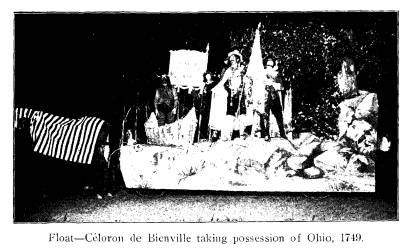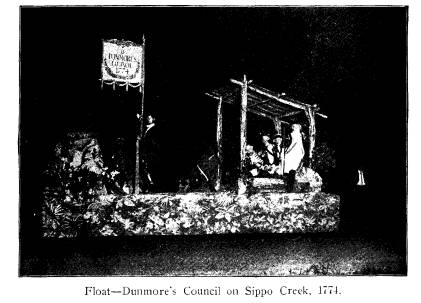Ohio History Journal
The Ohio-Columbus Centennial. 447
to their homes without a serious
accident. There was abundant
entertainment for all and there was no
extortion anywhere. Every
feature of the celebration over which
the commission had con-
trol was absolutely free, yet when the
books were closed every
expense had been provided for.
The great Sunday afternoon meeting at
the park seemed to
indicate that the "tumult and the
shouting" had not driven out of
mind the more serious considerations. The
glorification of the
the past seemed to have emphasized the
importance of present
problems, and there was fervid
expression of the hope that we of
today and tomorrow may be as faithful to
our duties as were
those of yesterday to theirs.
DR. GLADDEN'S CENTENARY POEM.
[On Sunday, September 1st, the official
celebration of the Ohio-
Columbus Centennial closed with the Amen
of Rev. L. T. Lowe, when
he pronounced the benediction upon 3,000
persons who gathered at Frank-
lin Park in the afternoon to participate
in joint exercises, which in-
cluded an original poem by the Rev. Dr.
Washington Gladden, which
we herewith publish in full.]
We come at length as shadows lengthening
fall,
To the last hour of our high festival;
In "God's first temple," in
the summer air
We lift our hearts to him in praise and
prayer,
Praise for the good that crowns the
century's close,
Prayer for the light and strength his
grace bestows
On all who humbly seek him; that the
days
Now lying fair before us, and the ways
Through which his love shall lead us may
be bright
With his o'ershadowing presence; that
the night
All 'round us shall be light because of
Him.
That through the murk and maze of
futures dim
His shepherding may keep us, and his
power
Protect us in the dark and perilous
hour.
We wait upon his word. Who speaks for
him?
Unseal our vision! Let the seraphim
Now stooping near us touch our eyes to
see
The form that bends above us; set us
free
From flesh and sense, that we may duly
hear
The word she speaks unto the inward ear.

